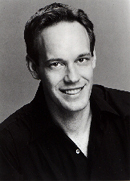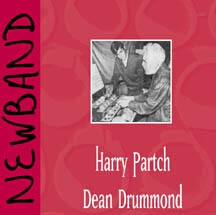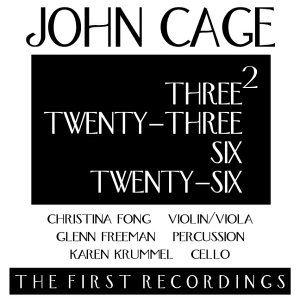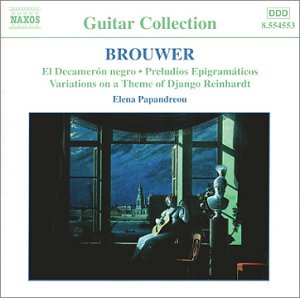 |
|
 |
|
| About Us | Essential
Library |
Read Past Issues | Resources | Composer Links |
|
GOING IT ALONE: The London Symphony's Grammy win last month with a recording it produced on its own, is challenging the traditional recording industry model. "To get these albums, marketed at about $8 to $9 per disc, into the hands of consumers, LSO Live employs distributors in Britain and Japan, and as of late, Harmonia Mundi U.S.A. But more significant, the orchestra is also selling the CD's directly through Internet outlets, including its own (www.lso.co.uk). To date, sales of "Les Troyens" have exceeded 30,000 sets." The New York Times 03/10/02 AIMING AT THOSE WHO DON'T COME TO CONCERTS: On the hunt for new audiences, the Colorado Symphony has begun a new series of concerts called CulturalConvergence. The series "will consist of culturally diverse concerts that combine orchestral music with dance, literature, theater and video, and incorporate production elements that are rarely encountered in conventional concerts. 'The point is, we can be very pure. But unless the Colorado Symphony has sold out every seat of every concert in the subscription season, it may be necessary to think about some other ways of reaching people." Denver Post 03/05/02 COMPUTER MUSIC ONSTAGE: Tired of seeing sheet music fall or blow away during performances, Harry Connick Jr. bought computers for his band on which scores scroll by. Now he's received a patent for the "system and method for coordinating music display among players in an orchestra." "Oh man, it's made my life easier," Mr. Connick said. "Before, I would write out a song by hand and give it to a couple of guys in the band who are copyists and they would figure out the instrumental sections. It could take days. Now I can write a new score in the morning and everyone has it on his computer screen in the afternoon. Imagine if a Duke Ellington or a Stravinsky had had a system like that." The New York Times 03/04/02 OVER THE EDGE: Though the Brooklyn Philharmonic has been much-praised artistically over the years, its financial operations have always been marginal. The slowing economy and September 11 only pushed the orchestra closer to the edge. Then, when the organization tried to cut costs by scaling back its concerts, the musicians revolted... "My biggest frustration is if we're not playing together as an orchestra, what are we?" The New York Times 03/05/02 TURNING DOWN THE CLASSICAL: Making the rumors come true, New York public radio station WNYC has announced it will replace five hours a day of classical music programming with news and talk programming. "The changes — approved by an 'overwhelming consensus' of the board of trustees at a meeting yesterday, signify the transformation of WNYC from a quirky station operated by sometimes eccentric hosts to a public radio station of the modern age, one that is a serious business requiring significantly larger funds to keep on running." The New York Times 03/08/02 MUSICAL PEACE PLEA CANCELED: Daniel Barenboim had planned to give a piano recital in the West bank city of Ramallah this week as his personal "plea for peace." "But the Israeli army said it had banned all Israeli citizens from entering territory under sole Palestinian control and Mr Barenboim was no exception," so the concert has been canceled. BBC 03/06/02 ARE WE ALL JUST THIEVES? "Despite a plethora of problems that have nothing to do with the Net, media executives are obsessed with the idea that their customers are shiftless pirates who want their wares for free. The world got a chance to sample this mind-set at the Grammys last week, when National Academy of Recording Arts and Sciences head Michael Greene hijacked his own awards ceremony to rant Queegishly about music downloading, 'the most insidious virus in our midst.' (So much for HIV.)" Newsweek 03/11/02 LEARNING FROM THE PHILLY DISASTER: Was the opening of the Philadelphia Orcehstra's new concert hall a "fiasco"? The LA Times' Mark Swed says yes, and directs a warning to all those who open new halls in the future - learn from Philly's mistakes. From impatience to programming to over-long opening speeches, Philadelphia is a textbook case of how not to open a new home. Los Angeles Times 03/04/02 |
Gorecki
Symphony Headlines
Modern Polish Music Concert by Deborah Kravetz Last week the Orient, this week Poland; if it’s Tuesday, this must be Belgium, and doesn’t music make travelling nicer. This Anni Baker Celebratory concert featured works from the late twentieth century by Polish composers, however, only the Gorecki Symphony exhibited any particular nationalistic hints. Divertimento for Strings (1965) by Grazyna Bacewicz, sounds scrubby, thready and stringy, with short phrases using the range of strings as one voice, but one of very tentative speech. A middle section is smoother, slightly more declaratory. The third section is almost exuberant, but regains some of the skitteriness of the opening. This is the Orchestra’s second performance of Winter’s Tale (1984) by Marta Ptaszynska, a piece informed by themes from Vivaldi’s Winter, but translated into surreality, juxtaposed with reality rendered with a distinct dullness of tone. Enough of the original survives for recognition of phrases here and there, in particular that unique rushing of snowy wind that serves as a sort of glue joining the phrases together. We are told that Witold Lutoslawski wrote Venetian Games (1961) “to make use of John Cage’s ideas of aleatory and indeterminacy;” pitches and rhythms are notated, but rhythmic coordination is at the discretion of the conductor or chance. Well, at least the percussion is precisely timed, even if nothing else is, but the discretionary “freedom” permitted by the composer makes this sound very like an improvisation—unfinished, even—and tentative in sound production, except for a passage for solo flute that is anything but. But the piece they packed the hall to hear is the Symphony No. 3 (1976) by Henryk Gorecki, the Symphony of Sorrowful Songs, performed by soprano Maureen O’Flynn with the Orchestra. This piece is mesmerizingly constructed, as a brown melody agonizingly clambers its fugal way out of the depths of the basses, through the cellos, violas and violins, gaining clarity in layers as each new instrument enters. Then, with three harp strikes, the soprano voice floats out above the held note to present the fugue theme vocally. The intensity grows into a piece that is passionate, moving and nowhere near tentative. Yet the succeeding song movements feel anti-climactic after this opening, and are almost monochromatic in expression. ORCHESTRA
2001
(Reposted
from Penn Sounds 3/5/02)
Les Troyens Wins Grammy for Classical Album of the Year
|

Dead Man Walking Composer: Jake Heggie Conductor: Patrick Summers Performer: Susan Graham, Frederica von Stade Ensemble: San Francisco Opera Chorus and Orchestra Wea/Atlantic/Erato - #86238 No "Nixon in China" or "Einstein at the Beach" but young Heggie has a way with melody and this debut opera suggests there may be better things to come. |
A Prole do Bebe No. 2, Cirandinhas Composer: Heitor Villa-Lobos Performer: Sonia Rubinsky Naxos - Flat out fantastic. Rubinsky makes child's play of Villa-Lobos' thornier conceits. If you live in New York, write this down: Sonia Rubinsky will be performing selections from Vol. 2 and the upcoming Villa-Lobos: Piano Music Vol. 3 on March 14th, Thursday, at 6:30 pm at the Klavier-Haus located at 211 West 58th St. |
Music for the Movies Alfred SCHNITTKE (1934-1998) Composer: Alfred Schnittke Conductor: Frank Strobel Ensemble: Rundfunk-Sinfonieorchester Berlin, Rundfunkchor Berlin Cpo Records Schnittke regarded film music as a legitimate expressive medium and wrote more than sixty film scores and worked with the prominent directors of his day. This collection demonstrates that he understood film composition thoroughly and considered it a new vista for his creative work. |

NEWBAND Composers: Harry Partch, Dean Drummond Innova 561 Works by former cohorts and microtonal pioneers, Harry Partch and Dean Drummond. This stunning new recording is performed by members of Newband primarily on the original Partch collection of hand-made instruments, notable for their sculptural and acoustic beauty. The music integrates declaimed poetry (masterfully performed by Bob Osborne) with colorful instrumental accompaniment. The Drummond pieces are first recordings, the Partch are the first since the 1940s. |
|
Preludes & Fugues for 13 solo strings: Three Postludes; Fanfares Composer: Witold Lutoslawski Conductor: Antoni Wit Naxos - #8555270 A treasure trove of Lutoslawski's "little" works, with lots of delightful listening for even those not fully committed to 20th century work. |
Passacaglia, Symphony, Five Pieces Passacaglia, Symphony, Five Pieces Composer: Anton Webern Conductor: Takuo Yuasa Ensemble: Ulster Orchestra Naxos Who knew that the Second Viennese School could be so...listenable. Has the music changed or have our ears adapted to the atonality? |
Concerto for Strings Composer: Joly BRAGA SANTOS Performer(s): Braga Santos, Creswick, Somov, Blair, Cassuto Marco Polo - Joly Braga Santos is one of the most interesting and gifted composers of the 20th century--and one of the most unknown. His musical language is based on a strong sense of architecture and drama, with generous melodic lines and a natural instinct for structure and formal coherence. If you don't know the work of this 20th century Portugese master, grab it. |
Symphony No. 1 Composer: George Barati Conductor: Laslzo Kovaks, Vladimir Valek Ensemble: Budapest Symphony Orchestra, Czech Radio Symphony Orchestra Naxos - The First Symphony was written in 1963 during a stay in Switzerland. Set in three movements, it is packed with musical incident. The Chant of Darkness was composed in 1993 as an expression of the composer’s grief as his daughter lay dying from cancer. The work exhibits a frightening sense of finality. The Chant of Light dates from 1994-5 and is cast in a simple structure, displaying Barati’s love of working with small motivic cells, combined with the use of luscious orchestral color. |

90% Post Consumer Sound Composer: Ellen Band Performer: Adele Armin Ellen Band Band creates 'sound art' from everyday noises with results that sometimes sound celestially musical and sometimes sound like..well everyday noises. |

Three2, Twenty-Three, Six, Twenty-Six Composer: John Cage Performer: Christina Fong, Glenn Freeman, et al. Orchard - #6260 |
String Quartets 1 & 2 Composer: Arnold Bax Performer: Maggini Quartet Naxos - Fresh from the Gramophone Award-winning Naxos recording of Vaughn Williams, the Maggini turn their attention to another English composer of elegiac melodies with superb results. |

Guitar Music, Vol. 2 Composer: Leo Brouwer Performer: Elena Papandreou Naxos - One of the best writers for the guitar alive today, Brouwer combines elements of his native Cuba with jazz and European modernism. Papandreou performs these tricky pieces elegantly. |
|
One-Minute Web Guide The essential guide to intelligent life on the internet |
Publisher: Duane Harper Grant (212) 582-4153 Editor: Jerry Bowles (212) 582-3791 Contributing Editors: Armando Bayolo, Sam Bergman, Joshua Cohen, Karina Cristina Demitrio, Deborah Kravetz (C) Sequenza/21 LLC 2000 |